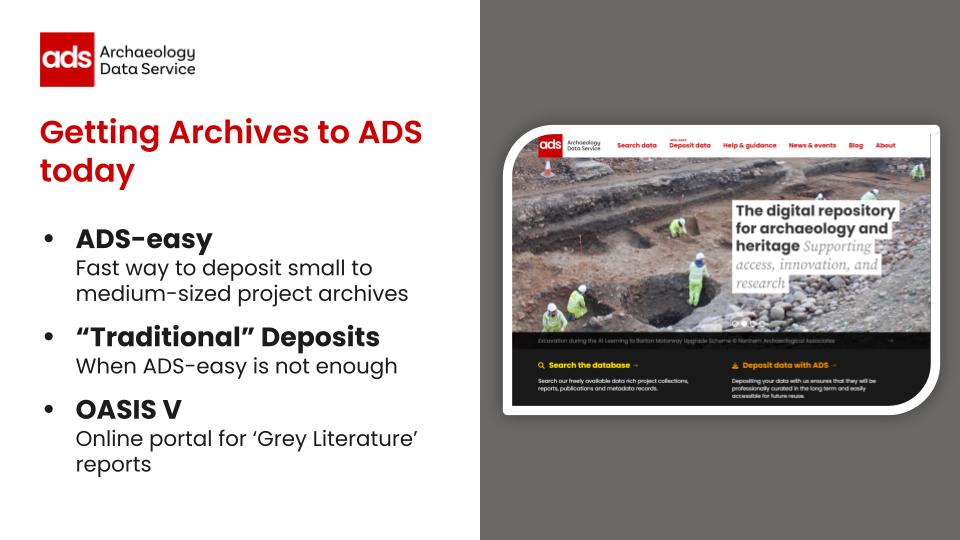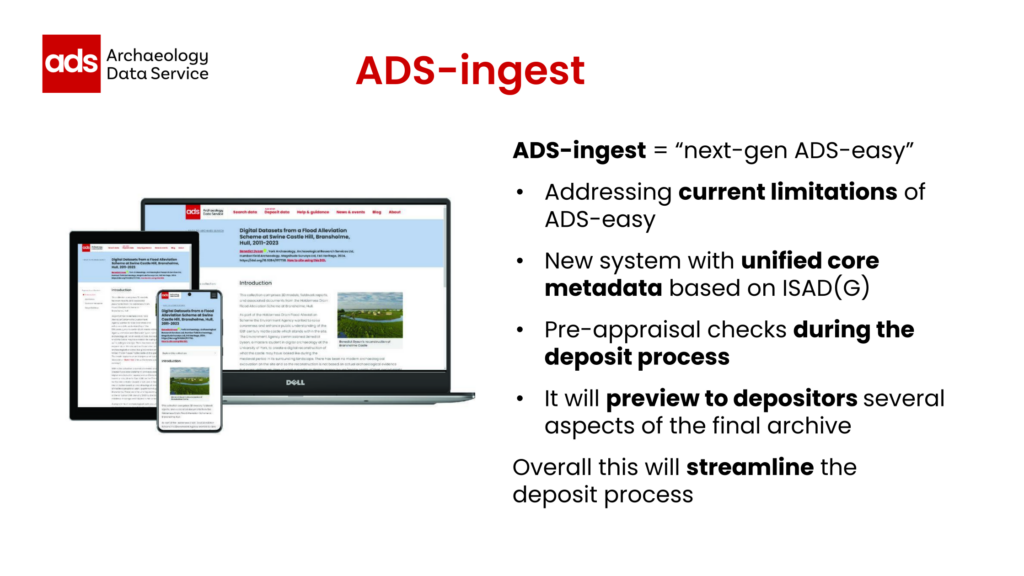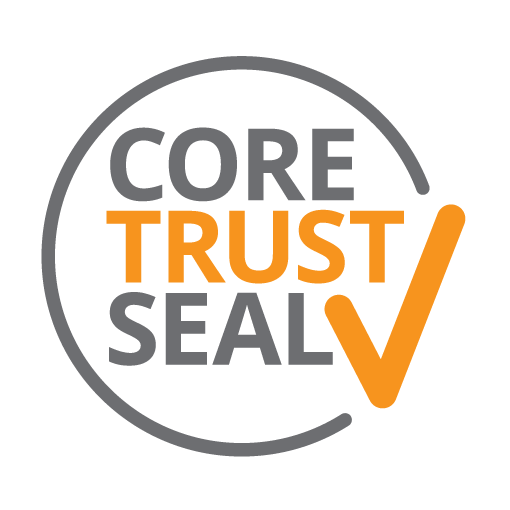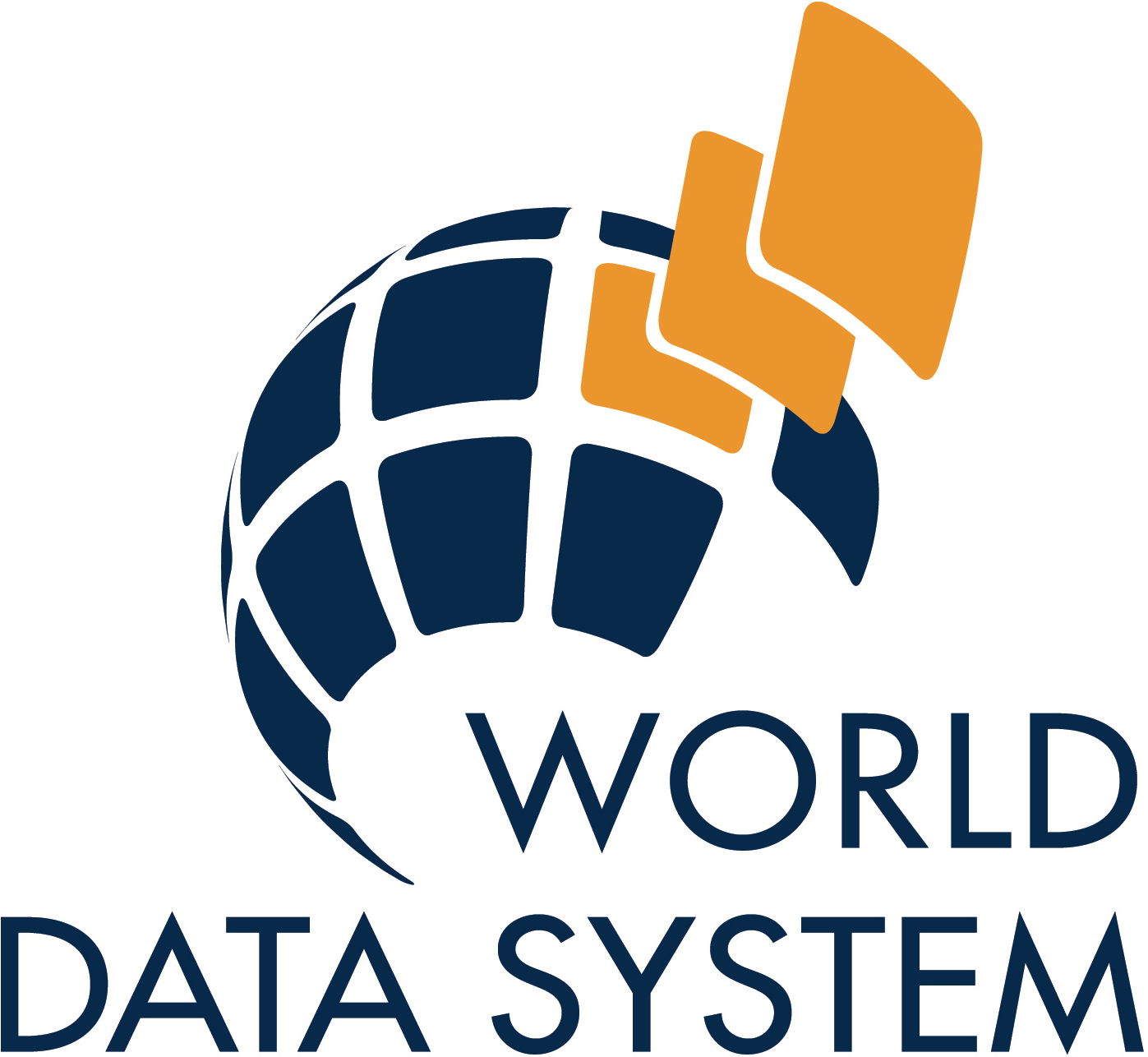DigiPres North is a recently established interest group initiated by Bryony Hooper (Digital Preservation Manager at the University of Sheffield) and Dorothy Waugh (Digital Preservation Archivist at the Borthwick Institute for Archives, University of York). As the name suggests, this initiative offers a valuable new networking opportunity for archivists and other practitioners active in the digital preservation sector in the north of England.
Following the first kick-off event on 28th February 2024, the organisers invited contributions for the next meeting, on the topic Ingest: How to get things into our collections. Here at ADS we agreed that it would be interesting to actively participate in this discussion, so I put my name forward and eventually delivered a presentation on how we ingest digital archives during the second DigiPres North meeting on 6th June 2024.

Aptly titled The Evolution of the Ingest Process at the Archaeology Data Service, my presentation started with an overview on who we are as an organisation and our specific position in the digital preservation community – as a digital-only archive (in fact, the first digital-only archive to have received TNA’s accreditation) operating as a paid business model within the archaeology sector.
After this, I continued by briefly describing how we follow the OAIS model when carrying out digital preservation by migration via our in-house collection management system, before getting to the heart of the matter and describe how the ingest process at ADS has evolved over time.
While in the past data was obtained manually from depositors via email or in the form of physical media – and each step in the archiving procedure was mostly a manual process with limited automation – this informed the ADS staff on the processes that would eventually be put in place to enhance and speed up our workflows.
Which led me to the next point, in which I discussed how the ADS currently operates and outlining how to get archives to us today:
- Via ADS-easy, as the fastest way to deposit small to medium-sized project archives
- As a “traditional” deposit, for archives with specific needs or larger extents
- Via OASIS, our dedicated solution for ‘Grey Literature’ reports

Finally, I talked about the future of depositing archives at ADS by mentioning ADS-ingest, our upcoming solution that will eventually replace ADS-easy by addressing its current limitations and will greatly improve upon the current deposit and ingest processes. This includes a brand new interface (following our recent update to the ADS archive pages) and the ability to preview to the depositor several aspects of the final archive, as well as performing several pre-appraisal checks during the deposit itself – which will greatly streamline the process for both us and our depositors.

Overall this was a great opportunity to share valuable insights on how we work with other colleagues across the north of England, but also for us to reflect upon how the way we operate evolved across three decades – and how we are planning to keep improving how we operate and address the needs of our community.
You can view and download the presentation from the ADS Presentation Page for 2024 or download it by clicking on the text below:





